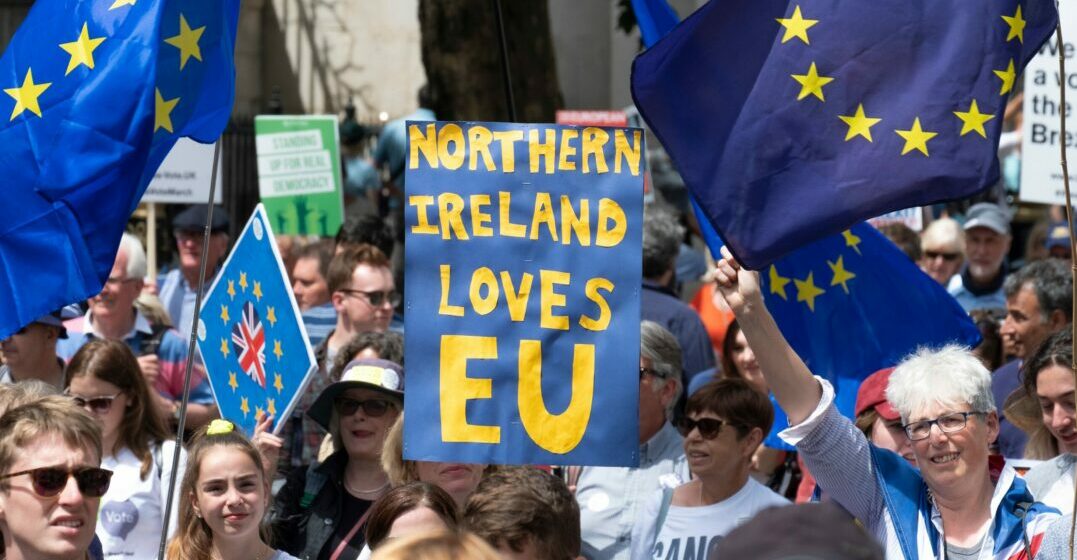What’s happening with Brexit in Northern Ireland?
Published on April 26, 2022 / Updated on January 10, 2024
Want to know what’s changed and what hasn’t post-Brexit in Northern Ireland? The UK has officially left the European Union, which means Northern Ireland, as part of the UK, has left. However, Northern Ireland has a special status in the post-Brexit world and certain rules are different when it comes to travel and moving goods between Ireland, Northern Ireland and the other UK countries. So, how is Brexit going to affect Northern Ireland?
In July 2016, the United Kingdom voted in favor of leaving the European Union, the so-called British Exit or Brexit. The country formally withdrew from the EU on 31 January 2020. However, Northern Ireland actually voted to stay in the EU, with 55.8% of the population voting to remain and 44.2% voting to leave. Scotland also voted in favor of remaining in the EU.
But as Northern Ireland is a part of the United Kingdom, the country did leave the EU, along with Scotland. The Republic of Ireland, as an entirely separate country, is still in the European Union.
After Brexit, all parties agreed to try to avoid a hard border between Ireland and Northern Ireland. Having an open border between the two countries was seen as very important because of the historical tensions in the region. The border has been almost invisible for many years now.
If you are crossing the Ireland–Northern Ireland border by land after Brexit, you won’t need to show any identification or go through any border controls. Irish and UK citizens still have the right to live and work in both countries thanks to the Common Travel Area, an agreement that is separate from the European Union. Most people flying into Northern Ireland from anywhere outside the UK will need to show their passports, though there are some exceptions for certain EU citizens.
If you’re shipping goods between the EU and Northern Ireland, you do not need to clear customs or complete any export forms so the process is still very easy. However, if you’re shipping goods between Northern Ireland and the UK, the goods do have to go through customs and export forms must be completed. This has meant that some Northern Irish firms are now able to be more competitive in the Republic of Ireland than firms in the rest of the UK.
The Northern Ireland Protocol guarantees that goods can be transported across the border without any customs checks, despite Northern Ireland officially being outside the Single Market. All customs checks happen in Northern Ireland’s ports and not at the land border which has created a de facto border in the Irish Sea. The UK is looking to change the Northern Ireland Protocol, though an open border is likely to remain.
People in Northern Ireland are still divided on Brexit many years after the vote. Violence in Northern Ireland in March and April of 2021 was partly blamed on tensions over the Northern Ireland Protocol. Unionists – those who are in favor of Northern Ireland being part of the United Kingdom – are unhappy with the de facto border in the Irish Sea and say the Protocol is pulling the country away from the rest of the UK.
Meanwhile, groups who would like Northern Ireland to become part of the Republic of Ireland feel like this might be becoming a greater possibility. If these groups ever become a majority in Northern Ireland, a referendum could be called to decide whether the country should remain in the UK or join Ireland.
The answer is, it depends on what you want to do. If you walk across the border between the countries, you will not notice any difference since Brexit at the moment. However, if you ship goods to Northern Ireland from the UK or vice versa, you will have noticed a change. And all of this could continue to change in the future as tensions continue in the country.
